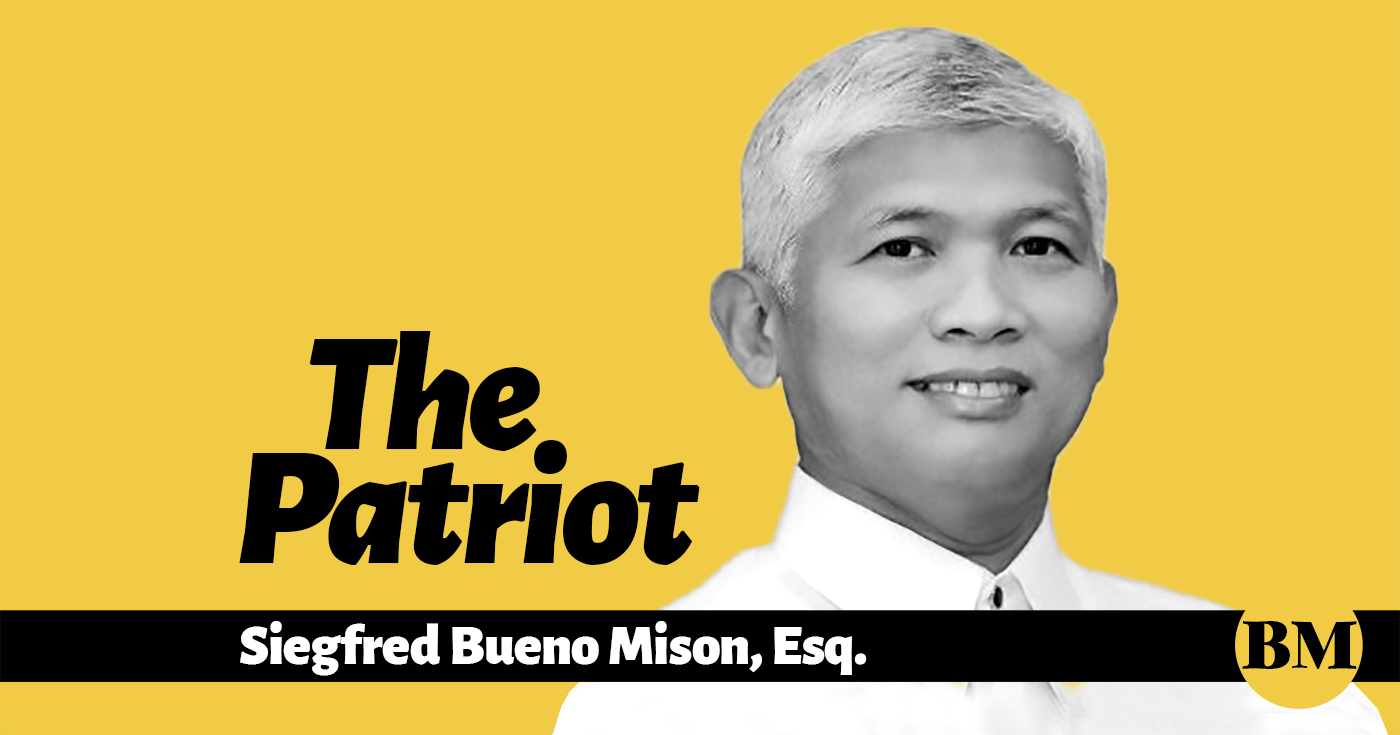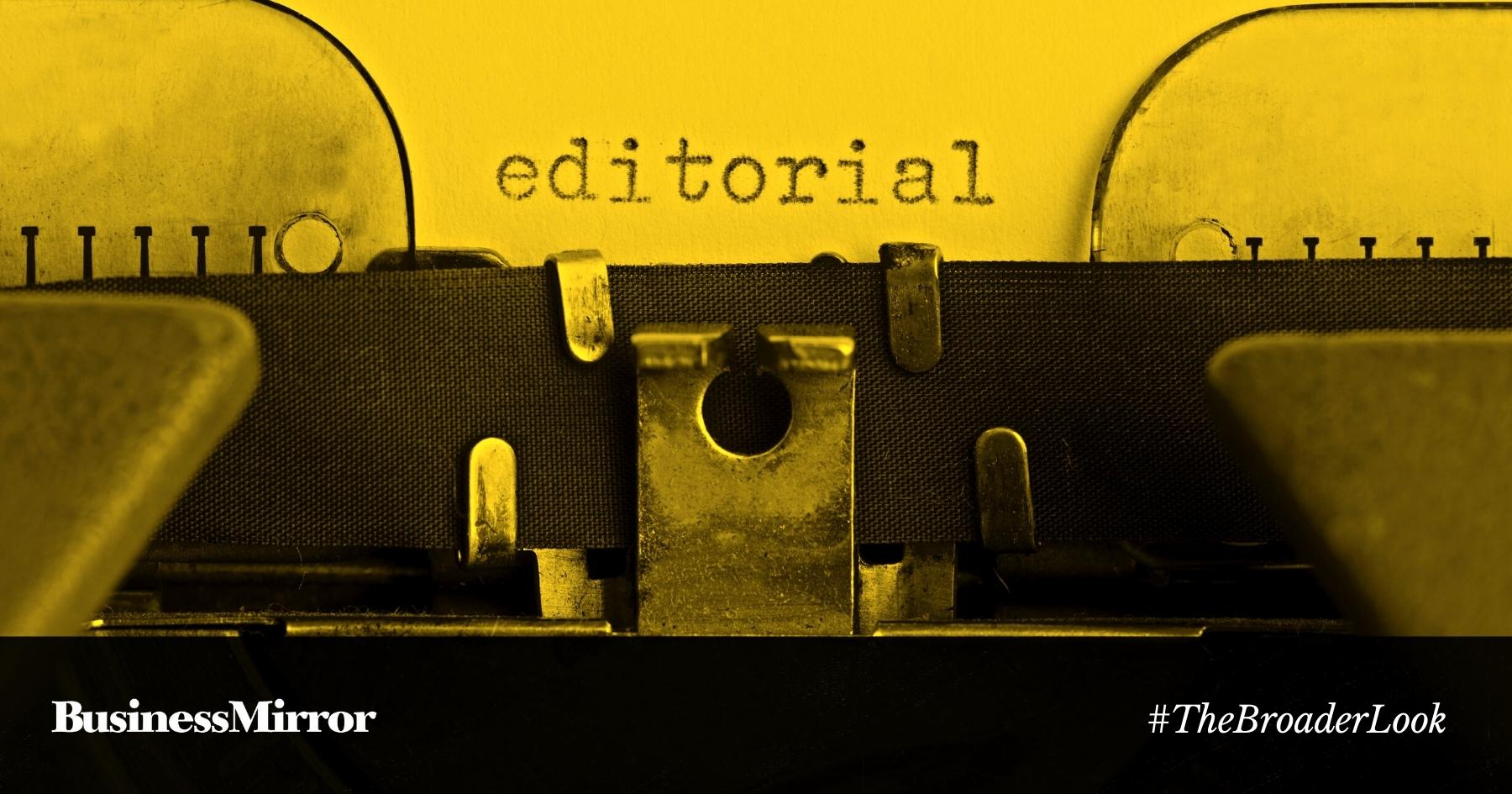IN her book “The Life-Changing Magic of Tidying up,” author Marie Kondo said that if a thing, whether a piece of clothing, a book, a gadget, or even a memento, does not spark joy, discard it. After all, memories are best kept in the heart and not in souvenirs. Kondo essentially says that tidying up things translates to tidying our lives.
The principles of her KonMari method appear to be the precursor of the more popular Japanese 5S. The 5S Method, which in Japanese, stands for Seiri, Seiton, Seiso, Seiketsu, and Shitsuke, is used to organize things in the workplace. In my past organizations, 5S was adopted to get rid of the clutter by doing Sort, Set in Order, Shine, Standardize, and Sustain. During the 5S campaign in the Bureau of Immigration, several colleagues were quite pessimistic about cleaning their respective cubicles since, according to them, they have other “better” things to do.
The resistance to a unique way of doing things seems understandable given the previous years of “organized chaos” in any workplace. What most workers do not realize is that 5S has this underlying objective of giving us a focused perspective at work. I wrote in my column five years ago: “No clutter gives us more focus. More focus leads to greater efficiency.”
Unknown to him perhaps, Ren Manansala (Ren) is one KonMari advocate as he promotes 5S plus 2, which he calls as 7S in Franklin Baker Company of the Philippines (FBCOP). To Ren, the additional S stands for Safety and Security. To him, a more productive workplace is not just about cleaning, recycling, and organizing; it is also having security-conscious people who know how to keep company premises safe from threats that can disrupt operations or affect product quality.
As Vice President for Operations of FBCOP, Ren teaches 7S knowing that basic awareness of the use of firefighting equipment and personal protective equipment (PPE), for example, contributes to the overall quality of FBCOP products. He also teaches the value of integrating security with the usual 5S, as basic as turning off computers and locking doors after work, which can impact the quality of work. Having spent more than seven years in FBCOP, Ren believes in the simple formula, that is, quality people + quality workplace = quality product. As a result, all the plants of Franklin Baker have AA++ certifications from BRCGS, a company that harmonizes food safety standards across the supply chain. Considered as the most rigorous third-party certification scheme of its type, the BRCGS Global Standards are a market-leading global brand that helps build confidence in the supply chain and provides assurance to customers that products with BRCGS certifications are safe.
With the reputable history of food quality in FBCOP, coupled with Ren’s 7S advocacy, FBCOP products are globally recognized as fully compliant to food safety and regulatory standards.
By encouraging employees to have less distractions at their desks, and hopefully and eventually in life, Ren assures both employees and customers of FBCOP that “everything is under control” when it comes to manufacturing coconut ingredients that meet the highest quality standards. What I noticed from Ren’s management style is that he has learned to let go of certain things beyond his control. Whenever something goes wrong in the production, his “operations mindset” is to fix and not to blame. After all, even as VP for Operations, he cannot possibly control everything that happens in all three manufacturing plants of FBCOP in Laguna and Davao. Not known to many, Ren is a prayerful person, who prefers to see the positive side of things by saying that it could have been worse.
In our personal lives, there is a need to let go of certain things and not to acquire more of the unnecessary or redundant stuff. This brings to mind a life lesson shared by Doris Puls, a professional organizer of D & O Decluttering and Organizing: “A place for everything and everything in its place.” Growing up in a “practical” environment, she relays —“When you use something, you put it back. Every dish and utensil was put away exactly where it belonged. Our family of nine had one pair of scissors and we had to put them back in their place for the next person to use. Which also brings up the point that more isn’t always better.”
Quite obviously, decluttering and organizing are geared towards a higher objective. The Bible, particularly in 2 Timothy 2:21, lays down the primary purpose of said principles, thus: “Those who cleanse themselves from the latter will be instruments for special purposes, made holy, useful to the Master and prepared to do any good work.” The “latter” refers to distractions in life, people and things which are wicked if not immoral, comparable to wooden and earthen vessels in this verse. So, if believers clear themselves of “clutter”—things, habits, or activities that defile good company, they are actually made holy in preparation for doing the more meaningful activities in life.
More than just getting an AA++ certification rating from any global standard, believers, who get rid of wicked friends or associates, but remain in the company of the faithful, are assured of a quality life, echoing Ren’s formula of quality people + quality workplace = quality product. More than merely acquiring worldly possessions, believers who keep it simple are able to lead a better example for others and render quality service, resonating Doris Puls’ blueprint of more isn’t always better.
I believe that what the Holy Book wants us to learn anent decluttering and organizing is something beyond getting rid of what we do not need in our lives. It is more about focusing on eternal truths, values that transcend even our earthly existence as they impact the lives of others in a positive way. What Jesus Christ told the crowd of people in Matthew 6:19-21 remains doctrinal up to this day: “Do not lay up for yourselves treasures on earth, where moth and rust destroy and where thieves break in and steal, but lay up for yourselves treasures in heaven, where neither moth nor rust destroys and where thieves do not break in and steal. For where your treasure is, there your heart will be also.”
As individuals, whenever our environment and our lives are sorted, set in order, shone, standardized, sustained, safe, and secured (7S), we can focus on our real mission of not just having a quality life but giving a quality life to those around us, laying up for ourselves treasures in heaven. According to KonMari, if there is a thing, even if new, but is not a need, “plant a seed,” as in giving it to others. Jesus Christ taught us the ultimate gift of giving by His example of dying for our sins on the cross. Whether we call it 5S or KonMari or Ren’s 7S or Puls’ more is not necessarily better, the principle of less clutter at work and in life with security and safety dimensions to boot, the principle is not just about improved efficiency. It is also about enriched spirituality in the product within us—a “treasure” which we can be appreciated by those around us.
A former infantry and intelligence officer in the Army, Siegfred Mison showcased his servant leadership philosophy in organizations such as the Integrated Bar of the Philippines, Malcolm Law Offices, Infogix Inc., University of the East, Bureau of Immigration, and Philippine Airlines. He is a graduate of West Point in New York, Ateneo Law School, and University of Southern California. A corporate lawyer by profession, he is an inspirational teacher and a Spirit-filled writer with a mission.
For questions and comments, please e-mail me at sbmison@gmail.com.



























